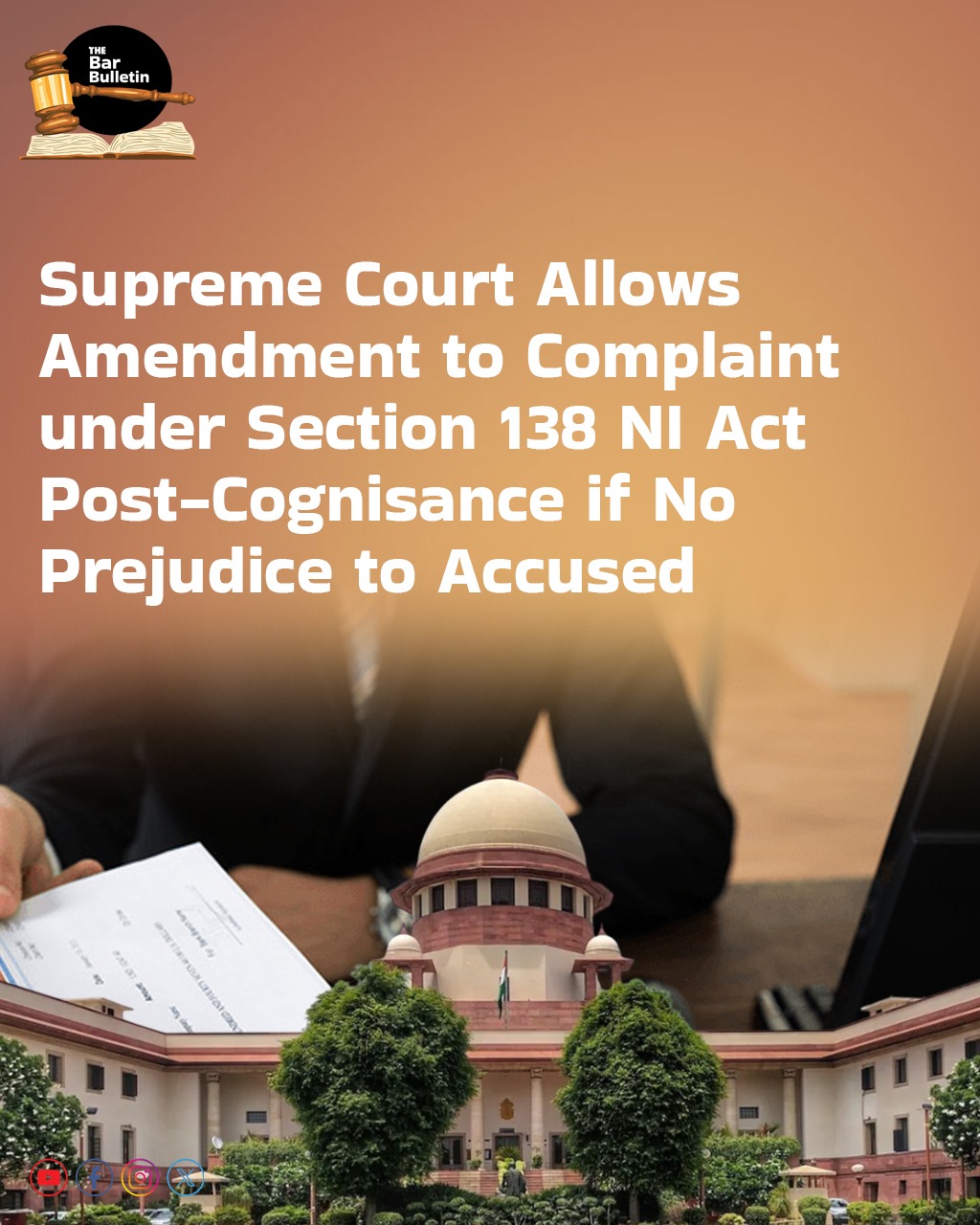The Supreme Court has recently allowed an amendment to a complaint filed under Section 138 of the Negotiable Instruments Act, 1881, emphasising that such an amendment is permitted at the post-cognisance stage, provided that no ‘prejudice’ is caused to the accused and the complainant’s cross-examination is awaited. The Court also added that what impact the amendment will have on the existence of debt or other liability is for the Trial Court to decide based on the evidence.
Since the amendment was a curable irregularity, which the Trial Court has rightly allowed, the Apex Court explained that the correction in the complaint requiring changing “Desi Ghee (milk products)” to “milk” was a typographical error appearing in both the legal notice and the complaint, and the amendment made is also regarding supply of products, the same did not have an effect of causing prejudice to the accused.
Carefully perusing the complaint and the application for amendment, the Division Bench comprising Justices BV Nagarathna and Justice KV Viswanathan observed that “the amendment was moved at a stage when, after summons being issued to the respondents, the chief examination of the complainant had concluded and when cross-examination was awaited. The amendment made is also only with regard to the products supplied. According to the complainant, while what was supplied was “milk”, by an inadvertent error “Desi Ghee (milk products)” was mentioned. The error which occurred in the legal notice was carried in the complaint also”. (Para 17)
Briefly, in the instant case, the appellant filed a complaint u/s 138 of the NI Act alleging that the respondents had purchased Desi Ghee (milk products) and that cheques issued by them for an amount of Rs. 14 lacs were dishonoured. However, before the complainant had been cross-examined, the appellant moved an amendment application seeking to amend the complaint and rectify the typographical mistake by changing ‘Desi Ghee (milk products)’ to ‘milk’. The Trial Court accepted the request, opining that no prejudice would be caused to the accused/respondents. The matter rose to the High Court, where the respondent argued that the amendment is an attempt to avoid liability under the GST Act, and finding merit in his contention, the High Court refused the amendment as sought, opining that no GST was leviable on milk.
When the matter reached the Apex Court, Sections 216 and 217 of CrPC [Section 239 and 240 of the Bharatiya Nagarik Suraksha Sanhita, 2023] were referred to observe that when a charge is altered, the trial can be proceeded with if there is no prejudice to the accused. So, the Court emphasized that the test of ‘prejudice to the accused’ is the cardinal factor that needs to be borne in mind. As far as the aspect of escapement from the levy of GST upon alterations of the term ‘desi ghee’ to ‘milk’ is concerned, the Apex Court concluded that the High Court has completely misdirected itself in delving into the aspects of chargeability of GST, as that would have been the concern of the appropriate authorities under the relevant statute.
Accordingly, since the amendment did not alter the nature and character of the complaint, the Apex Court allowed the appeal and restored the order of the Trial Court, while setting aside the judgment passed by the High Court.
Case Relied on:
S.R. Sukumar v. S. Sunaad Raghuram, (2015) 9 SCC 609
Appearances:
AOR Chritarth Palli, for the Petitioner
AOR Aabhas Kshetarpal, and Advocates Dhiliban Varadarajan & Harsh N Dudhe, for the Respondent

